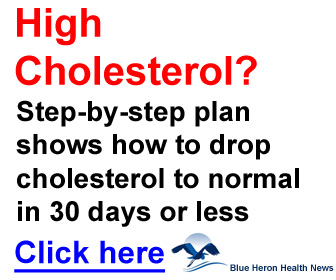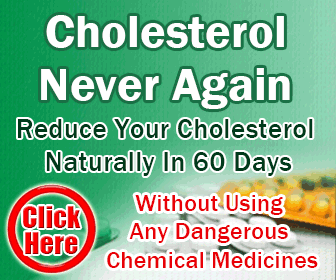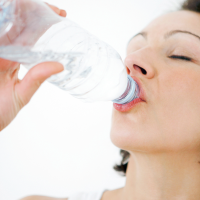What Causes High Cholesterol
Many things can cause high cholesterol, including:
- Diet. Eating too much saturated fat and cholesterol can raise your cholesterol. Saturated fat and cholesterol are in foods that come from animals (such as beef, pork, veal, milk, eggs, butter, and cheese), many packaged foods, stick margarine, vegetable shortening, and snack foods like cookies, crackers, and chips.
- Weight. Being overweight may raise triglycerides and lower “good” HDL.
-
Activity level. Not exercising may raise “bad” LDL and
lower HDL. - Overall health. Diseases such as hypothyroidism can raise cholesterol. Smoking may lower HDL.
- Age. Cholesterol starts to rise after age 20. In men, it usually levels off after age 50. In women, it stays fairly low until menopause. After that, cholesterol levels rise to about the same levels as in men.
- Family. Some people inherit a rare disease called a lipid disorder. It can cause very high total cholesterol, very low HDL, and high triglycerides. If you have this problem, you will need to start treatment at a young age.
How is high cholesterol diagnosed?
Doctors use a blood test to check cholesterol.
- A fasting cholesterol test (also called a lipoprotein analysis) is the most complete test. It measures total cholesterol, HDL, LDL, and triglycerides. You cannot have food for 9 to 12 hours before this test.
- A simple cholesterol test can measure total cholesterol and HDL. You can eat before this test. Sometimes doctors do this test first. If it shows you have high cholesterol or low HDL, then you will get a fasting cholesterol test.
How is it treated?
The two main treatments are lifestyle changes and medicines. The goal of treatment is to lower your “bad” LDL cholesterol and reduce your risk of a heart attack. You may also need to raise your “good” HDL cholesterol. A high level of HDL helps reduce your risk of heart problems.
Some lifestyle changes are important for everyone with high cholesterol. Your doctor will probably want you to:
- Follow the Therapeutic Lifestyle Changes (TLC) diet. The goal is to reduce the amount of saturated fat you eat. Eating saturated fat raises your cholesterol. The TLC diet helps you learn to make better food choices by picking lean meats, low-fat or nonfat products, and good fats like olive and canola oils.
- Lose weight, if you need to. Losing just 5 to 10 pounds (2.3 to 4.5 kilograms) can lower your cholesterol and triglycerides. Losing weight can also help lower your blood pressure.
- Be more active. Exercise can raise your “good” HDL and may help you control your weight.
- Quit smoking, if you smoke. Quitting can help raise your HDL and improve your heart health.
Sometimes lifestyle changes are enough on their own. But if you try them for a few months and they don’t lower your cholesterol enough, your doctor may prescribe a cholesterol-lowering medicine called a statin. You also may need medicines to lower triglycerides or raise HDL.
You may need to start taking medicine right away if your cholesterol is very high or if you have another problem that increases your chance of having a heart attack. People who have a high risk for heart attack benefit from taking higher doses of statins to lower their LDL cholesterol as much as possible. The more these people can lower their LDL, the less likely they are to have a heart attack.
It is important to take your medicine just the way your doctor tells you to. If you stop taking your medicine, your cholesterol will go back up. You will need to have your cholesterol checked regularly. Your results can help your doctor know if lifestyle changes have helped or if you need more or different medicines.



